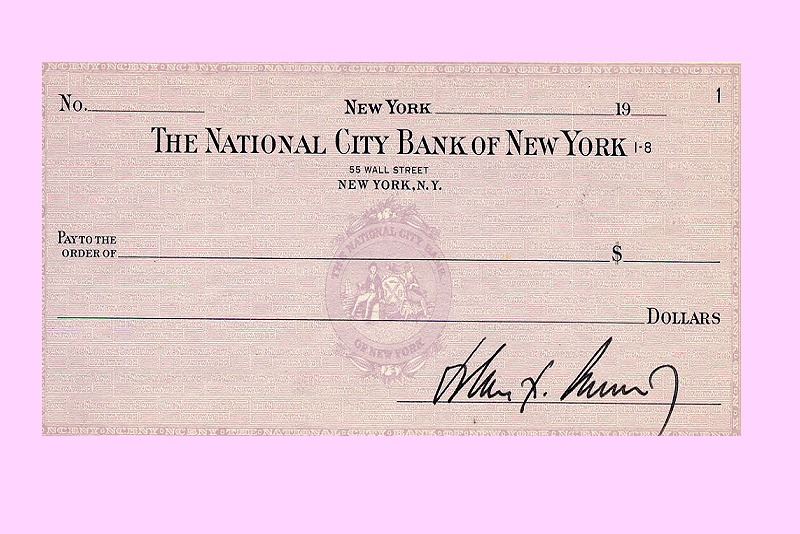BROWSE BY TOPIC
- Bad Brokers
- Compliance Concepts
- Investor Protection
- Investments - Unsuitable
- Investments - Strategies
- Investments - Private
- Features/Scandals
- Companies
- Technology/Internet
- Rules & Regulations
- Crimes
- Investments
- Bad Advisors
- Boiler Rooms
- Hirings/Transitions
- Terminations/Cost Cutting
- Regulators
- Wall Street News
- General News
- Donald Trump & Co.
- Lawsuits/Arbitrations
- Regulatory Sanctions
- Big Banks
- People
TRENDING TAGS
Stories of Interest
- Sarah ten Siethoff is New Associate Director of SEC Investment Management Rulemaking Office
- Catherine Keating Appointed CEO of BNY Mellon Wealth Management
- Credit Suisse to Pay $47Mn to Resolve DOJ Asia Probe
- SEC Chair Clayton Goes 'Hat in Hand' Before Congress on 2019 Budget Request
- SEC's Opening Remarks to the Elder Justice Coordinating Council
- Massachusetts Jury Convicts CA Attorney of Securities Fraud
- Deutsche Bank Says 3 Senior Investment Bankers to Leave Firm
- World’s Biggest Hedge Fund Reportedly ‘Bearish On Financial Assets’
- SEC Fines Constant Contact, Popular Email Marketer, for Overstating Subscriber Numbers
- SocGen Agrees to Pay $1.3 Billion to End Libya, Libor Probes
- Cryptocurrency Exchange Bitfinex Briefly Halts Trading After Cyber Attack
- SEC Names Valerie Szczepanik Senior Advisor for Digital Assets and Innovation
- SEC Modernizes Delivery of Fund Reports, Seeks Public Feedback on Improving Fund Disclosure
- NYSE Says SEC Plan to Limit Exchange Rebates Would Hurt Investors
- Deutsche Bank faces another challenge with Fed stress test
- Former JPMorgan Broker Files racial discrimination suit against company
- $3.3Mn Winning Bid for Lunch with Warren Buffett
- Julie Erhardt is SEC's New Acting Chief Risk Officer
- Chyhe Becker is SEC's New Acting Chief Economist, Acting Director of Economic and Risk Analysis Division
- Getting a Handle on Virtual Currencies - FINRA
ABOUT FINANCIALISH
We seek to provide information, insights and direction that may enable the Financial Community to effectively and efficiently operate in a regulatory risk-free environment by curating content from all over the web.
Stay Informed with the latest fanancialish news.
SUBSCRIBE FOR
NEWSLETTERS & ALERTS
Broker Used Customer’s Checks to Pay His Own Expenses
by Howard Haykin
THE DEVIL MADE HIM DO IT. Greed and temptation prompted the broker to convince the customer to provide him with signed blank checks drawn on the Stifel account. Then, from the get-go, and over the next 10 months, the Boynton Beach broker actively wrote checks – 33 in all - on the customer’s brokerage account. He used the funds to pay for his own personal expenses, which included: (i) his overdue homeowner's association fees; (ii) his children's summer camp fees; (iii) his attorney fees; (iv) his children’s college counselor; (v) the purchase of a 1976 Corvette automobile; and (vi) a spending allowance for his wife. All told, the broker ‘converted’ or stole over $211,000 of the customer’s funds. For his actions, the broker was terminated, barred from the industry and charged with wire fraud.
CUSTOMER SAFEGUARDS. Elderly persons oftentimes feel they have little or no choice but to entrust their financial affairs with another person. And depending on their mental capacity, they may not recognize the risks associated with such arrangements. So, what’s an elderly person to do? While it’s easier said than done, planning should take place before an individual reaches an advanced age, and should include assigning an independent and trustworthy friend, family member or ‘Financial Watchdog’ to monitor that person's financial affairs, including his or her brokerage and checking accounts.
[For further details click on SEC Administrative Proceeding 3-19447.]





